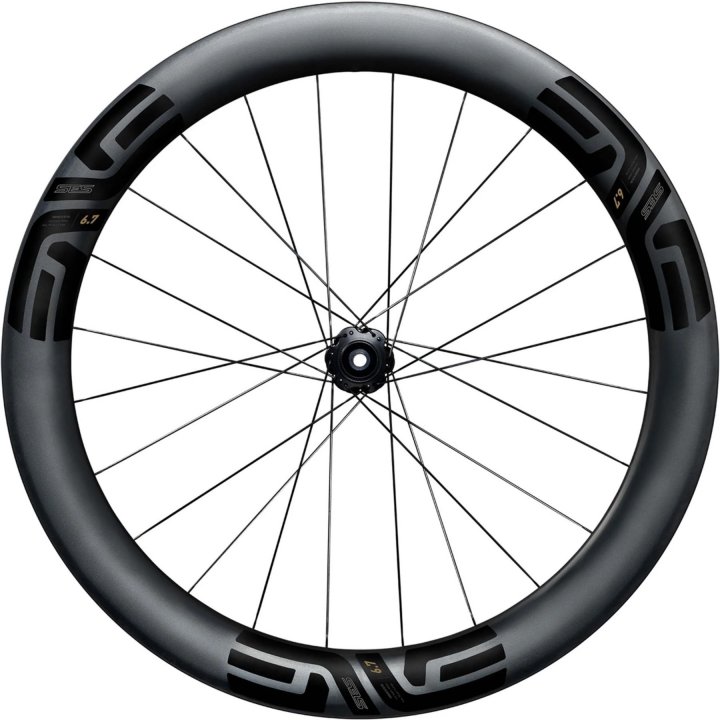Carbon vs Aluminum Road Bike Wheels

Choosing between Carbon vs Aluminum Road Bike Wheels, (often referred to as “alloy”) for a road bike involves considering multiple factors. Each material offers distinct advantages and disadvantages depending on your riding preferences, budget, and priorities. I personally own bikes with aluminum and carbon wheels, and there are pros and cons to both. Here’s a comparison to help guide your decision.
1. Weight:
- Carbon: Typically lighter than aluminum wheels of similar depth and design. This makes carbon wheels attractive to racers and enthusiasts who prioritize weight savings.
- Aluminum: Generally heavier than carbon wheels, especially as the rim depth increases.
2. Aerodynamics:
- Carbon: Allows for more intricate and aerodynamic shapes due to the molding process. Deep-section carbon rims (40mm and above) are popular among time trialists and triathletes for their aerodynamic benefits.
- Aluminum: Limited in terms of aerodynamic shapes compared to carbon. However, there are some aluminum wheels with aerodynamic features.
3. Stiffness and Ride Quality:
- Carbon: Offers a unique combination of stiffness and compliance, which can result in a smoother ride. Carbon can be engineered to be very stiff in one direction and compliant in another.
- Aluminum: Typically stiffer and can sometimes feel harsher on rough roads compared to carbon. However, this can vary based on the specific design and build of the wheel.
4. Durability and Maintenance:
- Carbon: Can be more fragile to sharp impacts like potholes. Damage might not always be visible, so regular inspection is crucial. Carbon braking surfaces (on rim brake models) can also wear down over time and might not perform as well in wet conditions.
- Aluminum: Generally more robust and durable for everyday riding. The braking surface on aluminum rims is often superior, especially in wet conditions.
5. Cost:
- Carbon: Generally more expensive due to the material and manufacturing processes involved.
- Aluminum: Typically more affordable and offers excellent value for those on a budget.
6. Versatility:
- Carbon: Best suited for performance-oriented rides like racing, fast group rides, and climbing.
- Aluminum: A great all-around choice suitable for training, commuting, and casual rides, as well as racing.
7. Brake Performance (for rim brake versions):
- Carbon: Requires special carbon-specific brake pads. Braking performance, especially in wet conditions, has historically been inferior to aluminum, but advancements have been made in recent years.
- Aluminum: Offers consistent and reliable braking with standard brake pads. Performs better in wet conditions compared to carbon.
8. Looks and Aesthetics:
- Carbon: Often preferred for its modern, sleek appearance and the ability to incorporate various designs and finishes.
- Aluminum: More traditional look, but newer models are incorporating better finishes and designs.
9. Major Road bike Wheel Manufacturers
10. Best Road Bike Wheels Reviews and Rankings
To help you find the best Road Bike Wheels, we have watched 89 video reviews of the most popular bike wheels and recorded the opinions of the reviewers on Aerodynamics, Weight, Ride Quality, Build Quality, Looks, and Rear Hub.
Click here to see the rankings and reviews
Conclusion: The decision between carbon and aluminum wheels should be based on your specific needs, budget, and riding style. Carbon wheels offer performance benefits like weight savings and aerodynamics, making them attractive to competitive riders. On the other hand, aluminum wheels offer durability, better braking (for rim brake versions), and value for money, making them suitable for a broader range of cyclists.
I hope that helps you make your decision. John
FAQ’s
Are carbon wheels faster than aluminum?
Whether carbon bike wheels are “faster” than aluminum wheels depends on various factors, including the specific design of the wheels, the conditions under which they’re used, and what we mean by “faster.” Here’s a breakdown of how carbon wheels might provide a speed advantage in certain situations:
- Aerodynamics: One of the primary ways in which carbon wheels can be faster than aluminum wheels is due to aerodynamic advantages. Carbon allows for more intricate and aerodynamic rim shapes because of the molding process. Deep-section carbon rims (40mm and above) are designed to reduce drag, which can translate to higher speeds, especially in time trials, triathlons, or flat terrains.
- Weight: In general, carbon wheels are lighter than aluminum wheels of the same rim depth. In situations where weight is a critical factor, such as climbing, a lighter wheel can provide a speed advantage by reducing the rotational weight and the overall weight of the bike.
- Stiffness: Carbon wheels can be engineered to be exceptionally stiff, which means they might provide better power transfer when accelerating or sprinting.
- Ride Quality: Some riders believe that the unique vibration-damping qualities of carbon can lead to less fatigue over long rides, allowing them to maintain higher speeds for longer.
However, there are considerations:
- Braking Performance: For rim-brake wheels, aluminum typically offers better and more consistent braking, especially in wet conditions. Poor braking can reduce a rider’s confidence to maintain high speeds in certain situations.
- Cost-to-Benefit Ratio: The speed advantages of carbon wheels might be noticeable for competitive racers or in time trials but could be negligible for the average rider, especially given the cost difference.
- Terrain and Riding Conditions: In some terrains or riding conditions, the aerodynamic and weight benefits of carbon might not translate to noticeable speed differences. For instance, in a short, technical criterium race with lots of sharp corners, the aerodynamic advantages of deep-section carbon wheels might not be fully realized.
- Skill Level: The skill level of the rider also plays a significant role. A highly skilled rider on aluminum wheels can easily outpace a less skilled rider on carbon wheels.
In summary, while carbon wheels can offer advantages that might translate to higher speeds in certain situations, it’s not accurate to say that they are universally “faster” than aluminum wheels. The real-world difference in speed is also often smaller than what people might expect, especially for recreational riders. It’s essential to consider the type of riding you do, your budget, and other factors before deciding if the potential speed gains from carbon wheels are worth it for you.





